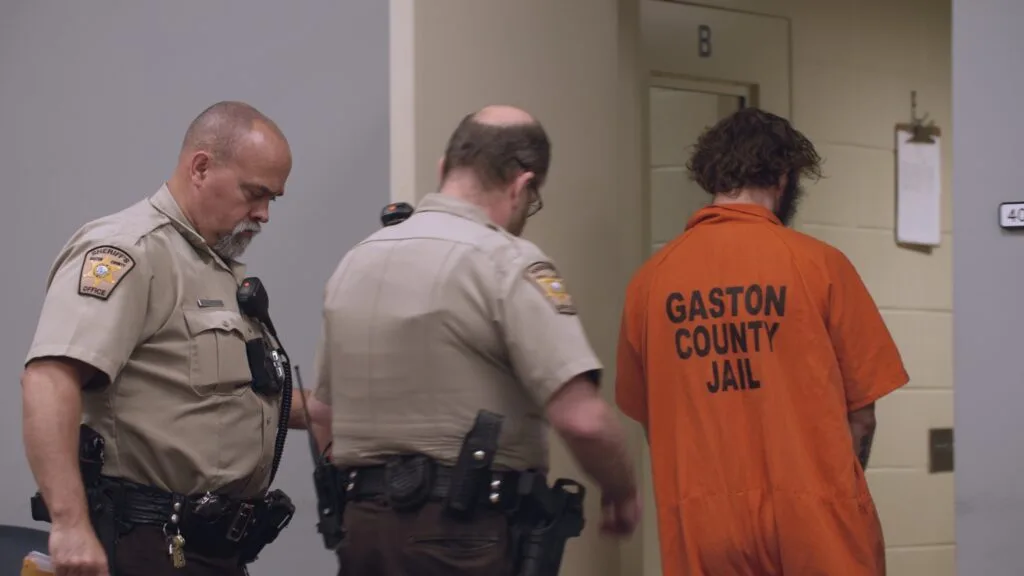Stuck in a ‘Fractured’ System

March 15, 2024
Working as a health care reporter in North Carolina, WFAE’s Dana Miller Ervin heard about jail inmates living with serious mental illnesses who cycled for years between jails and psychiatric hospitals. The courts deem them too sick to stand trial — incapable to proceed or ITP — but they often wait months to get the care they need just so their cases can move forward.
Ervin detailed her investigation in an 11-part WFAE radio series, “Fractured,” made with support from FRONTLINE’s Local Journalism Initiative. Now, a documentary by the same name follows Ervin as she chronicles the plight of ITP inmates. Fractured is directed by Débora Souza Silva, a 2023 recipient of the FRONTLINE/Firelight Media Investigative Journalism Fellowship.
Ervin and Silva joined Raney Aronson-Rath on The FRONTLINE Dispatch to discuss making the film; how long waits for care affect these defendants as well as others in the criminal justice system; and potential solutions to the problem.
The Fractured documentary is streaming on FRONTLINE’s website, YouTube, and the PBS App.
Read and listen to more from WFAE and FRONTLINE’s series Fractured.
Latest Documentaries
Explore
Policies
Teacher Center
Funding for FRONTLINE is provided through the support of PBS viewers and by the Corporation for Public Broadcasting, with major support from Ford Foundation. Additional funding is provided the Abrams Foundation, Park Foundation, John D. and Catherine T. MacArthur Foundation, Heising-Simons Foundation, and the FRONTLINE Trust, with major support from Jon and Jo Ann Hagler on behalf of the Jon L. Hagler Foundation, and additional support from Koo and Patricia Yuen. FRONTLINE is a registered trademark of WGBH Educational Foundation. Web Site Copyright ©1995-2025 WGBH Educational Foundation. PBS is a 501(c)(3) not-for-profit organization.



















